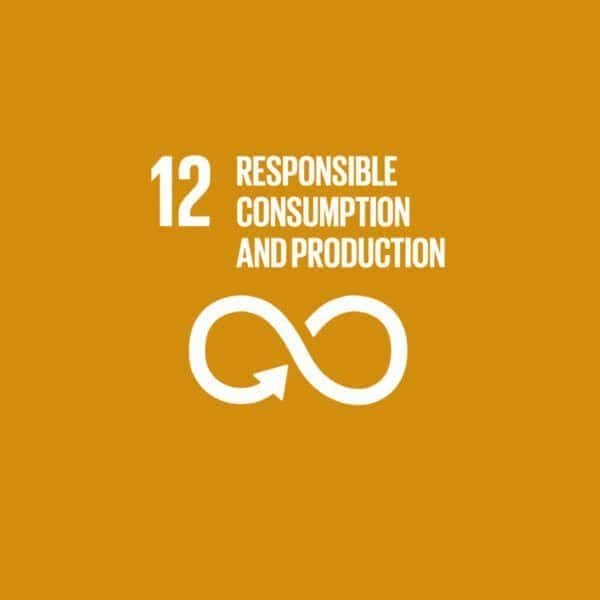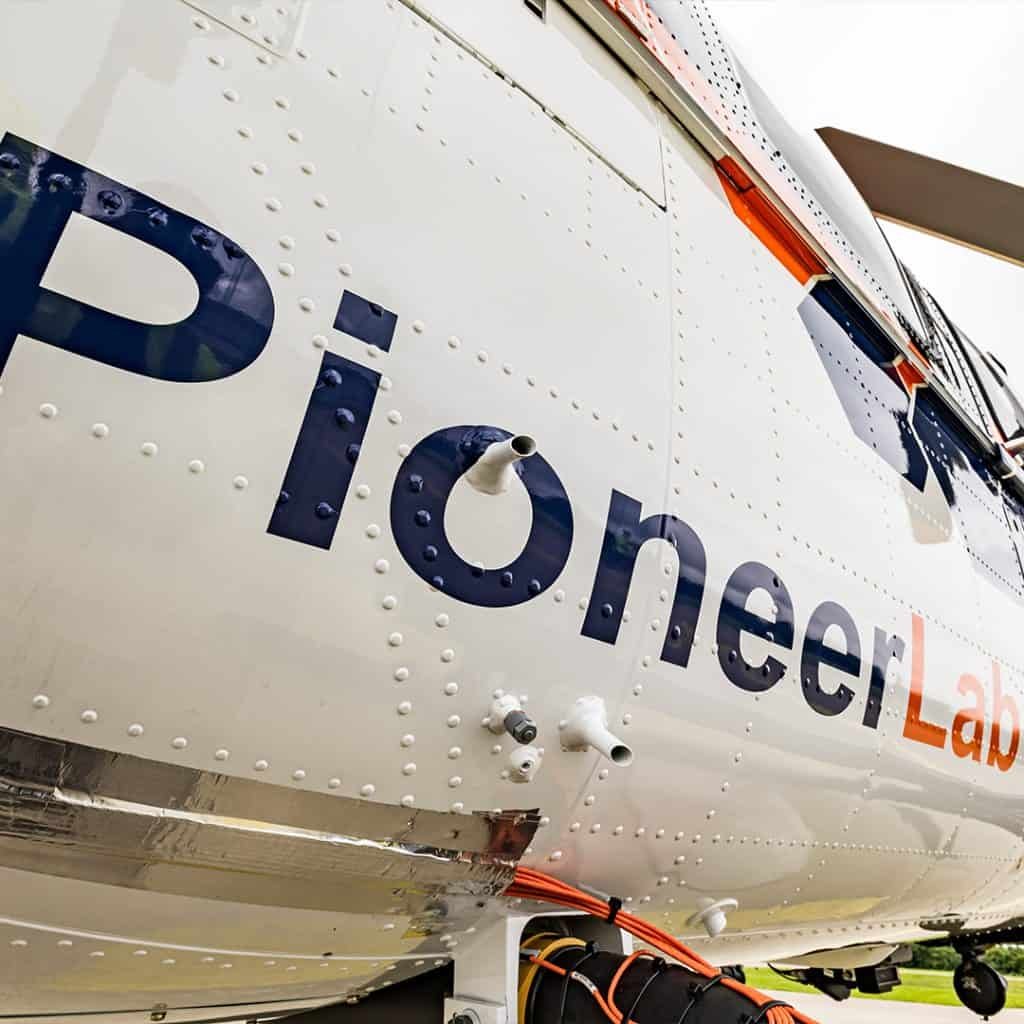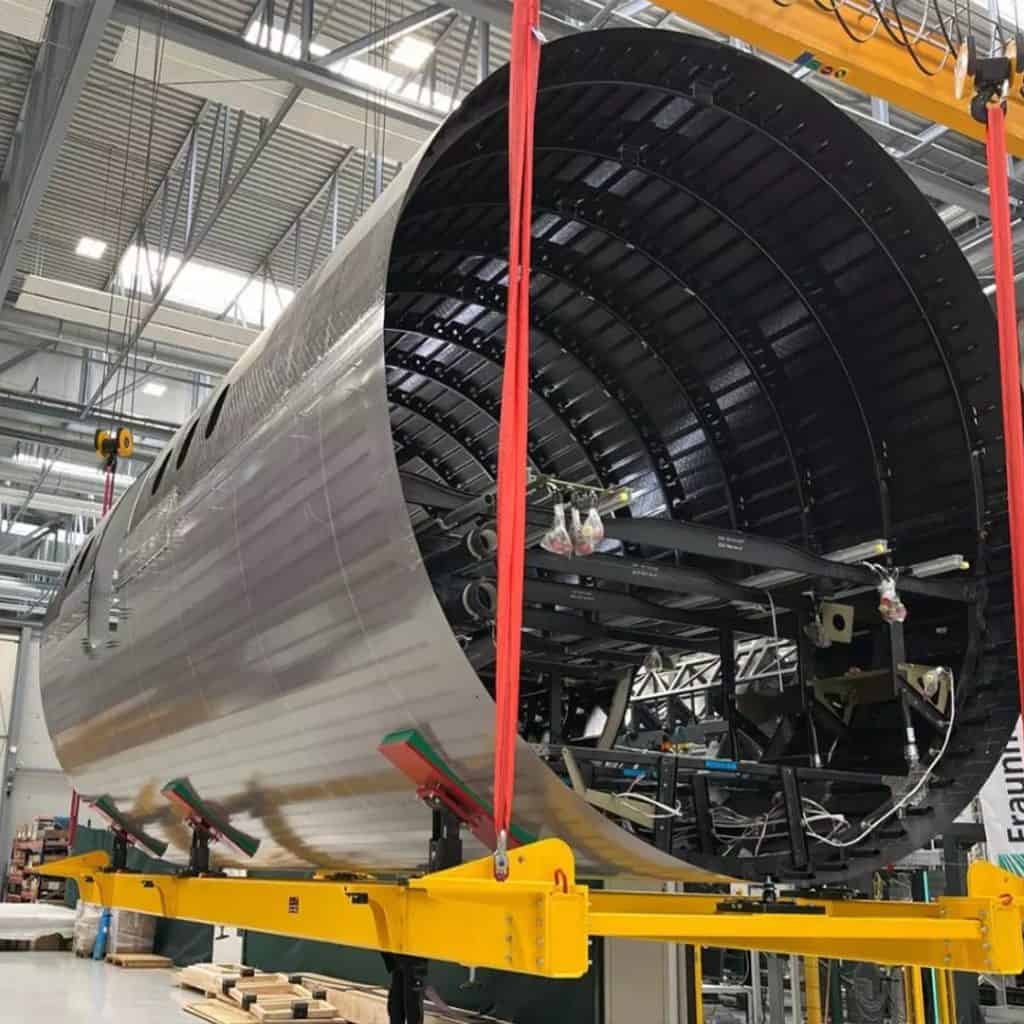
“Our engineers are resourceful and creative. By taking into account efficient production, operation, and end-of-life management from the very start, they are able to design for the full lifecycle of the aircraft.”

Ensure sustainable consumption and production patterns.
Taking a lifecycle approach
Responsible leadership
Airbus is a global leader in the aerospace industry, operating in the aircraft, helicopter, defence, and space sectors. Many Airbus products have, by their very nature, a long service life – around 20 years. In line with SDG 12, Airbus takes a lifecycle approach that includes responsible sourcing of materials, reducing waste throughout the manufacturing process, and end-of-life recycling and management.
“Achieving flight was the first revolution of aerospace, followed by the second, which focused on improving safety. The third revolution was democratizing flight, so it was accessible for all. Now we are in the midst of the fourth revolution, which is decarbonizing aviation,” says Sabine Klauke, Chief Technology Officer at Airbus and Executive Vice President Engineering of Airbus Commercial Aircraft.


Reuse, recycle, maintain
For Airbus, it is important that the aerospace sector considers the entire lifecycle of a product. As the largest aerospace company in Europe, Airbus is aware of the significant impact it can have on the supply chain – influencing its thousands of suppliers to consume and produce responsibly.
One area of focus is increasing the circularity of materials, especially given the ready recyclability of metals used to build aircraft. Airbus engineers are working with suppliers on solutions to recycle titanium and aluminum from production and reinject it into the aerospace supply. Not only does this reduce waste, it also reduces lifecycle emissions, with the process for titanium recycling using 90% less energy than processing virgin titanium.
During operation, maintenance services are required to extend the useful life of aircraft. At the end of life, when an aircraft is retired from service, around 90% of the constituent parts by mass are able to be recovered or recycled. Airbus has partnerships and joint ventures that offer used serviceable material and end-of-life services.
“Our engineers are resourceful and creative. By taking into account efficient production, operation, and end-of-life management from the very start, they are able to design for the full lifecycle of the aircraft,” says Klauke.
Working with the supply chain
Airbus has operations in more than 180 locations and works with approximately 19,000 suppliers. Airbus requires its suppliers to commit to responsible business practices and sustainable development. Suppliers are expected to cascade these principles through their own supply chain and go beyond legal compliance. Airbus also undertakes ongoing human rights due diligence to identify and address risks in its supply chain.
“We have to mitigate the risks that come from our extensive supply chain, and we require our suppliers to meet the same strict standards as the ones we set for ourselves,” says Klauke. “It is very important to make sure everybody steps up.”
Did you know?
Serviceability and repairability are important aspects of circularity. To meet growing demand in the aircraft and maintenance sector, nearly 700,000 new technicians will be needed by 2043, according to Airbus’ 2024-2043 Global Services Forecast.